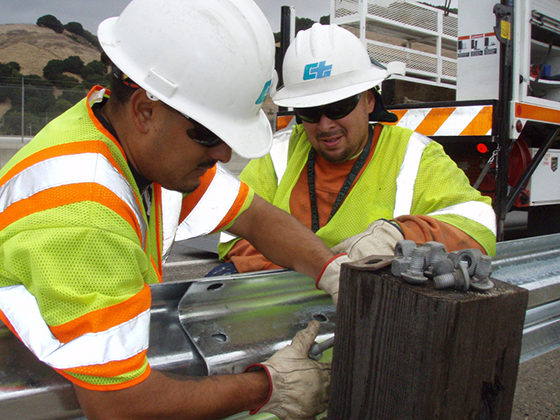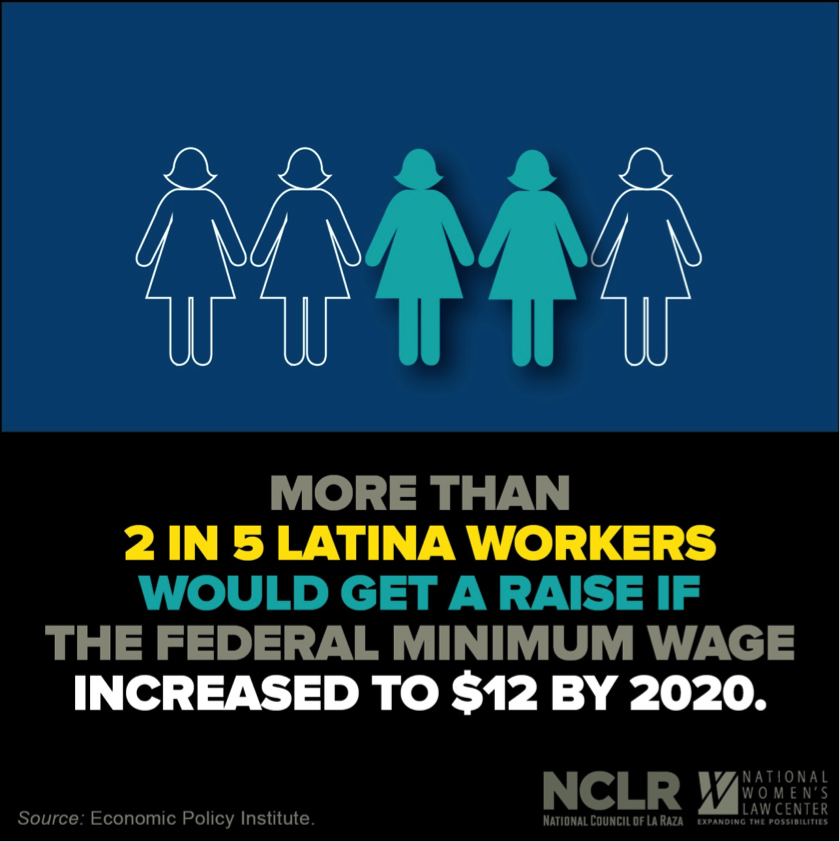Workers in the United States Deserve a Raise
By Yuqi Wang, Policy Analyst, Economic Policy Project, NCLR

Millions of workers and their families are living in poverty despite being employed and working back-breaking hours. This is largely because the federal minimum wage has been stuck at $7.25 for the last six years, while the cost of living, food, education, and health care have continued to soar.
Keep up with the latest from UnidosUS
Sign up for the weekly UnidosUS Action Network newsletter delivered every Thursday.
Worse, the minimum wage for tipped workers has been frozen at $2.13 for more than a quarter of a century. It’s clearly time to raise the minimum wage—workers deserve a better standard of living that doesn’t force them to struggle to cover standard necessities.
The “Raise the Wage Act” introduced yesterday by Senators Bernie Sanders (I-Vt.) and Patty Murray (D-Wash.), and Representatives Bobby Scott (D-Va.) and Keith Ellison (D-Minn.) would go a long way toward strengthening middle-class families by raising the minimum wage to $15 by 2024, and gradually increasing the tipped minimum wage each year. This legislation would help lift full-time workers out of poverty, reduce their need for public benefits, and increase their ability to afford basic living costs such as food, visits to the doctor, and home repairs.

Raising the wage to $15 would translate to $144 billion in higher wages for 41 million American workers. Affected workers who work year-round would get $3,500 more a year in their pockets—enough to make an impact on the livelihoods of teachers, bank tellers, and fast-food workers who are currently struggling to get by on salaries that average $20,000 a year.
Further, raising the tipped minimum wage will be a critical first step to ensuring that employees of restaurants, salons, casinos, and other businesses that employ tipped workers are guaranteed a stable, living wage. For waiters working in establishments like Denny’s and other fast-casual restaurants, it can take most or all of their tips just to get to the minimum wage, if they get there at all. Due to their low wages and higher poverty levels, about 46 percent of tipped workers and their families rely on public benefits, compared with 35 percent of non-tipped workers and their families.
The badly needed update to the minimum wage will heavily affect Latinos, who are concentrated in sectors such as eating, drinking, lodging services, construction, and building and ground maintenance—many of which are low-paying and leave full-time workers unable to cover basic family needs like housing, food, and gas. If the minimum wage is increased to $15 an hour, Latinos would represent one-third (13.7 million) of workers who would benefit despite making up only 16 percent of the workforce. The failure of not providing workers with enough income to buy necessities is one of the major factors contributing to rising Latino child poverty and income inequality.

An increase in wages to $15 an hour would especially benefit Latinas. In 2015, almost one-quarter of all Latinas (21 percent) were in poverty. Under the proposal to increase the minimum wage to $15 an hour by 2024, more than half (56 percent) of workers who would see a raise are Latinas and other women workers. Higher wages are especially important to hard-working mothers. An increase in the minimum wage is critical for Latina working moms because more than two in five of Latina single-mother families lived in poverty in 2015. Hard-working Latina moms earning poverty wages shouldn’t have to decide between paying the bills and putting food on the table for their kids.
Raising the minimum wage for millions of hard-working people in the United States is a critical tool to support the middle class. A $15 minimum wage would mean greater financial security and economic opportunities for Latino workers, their families, and communities to thrive.

